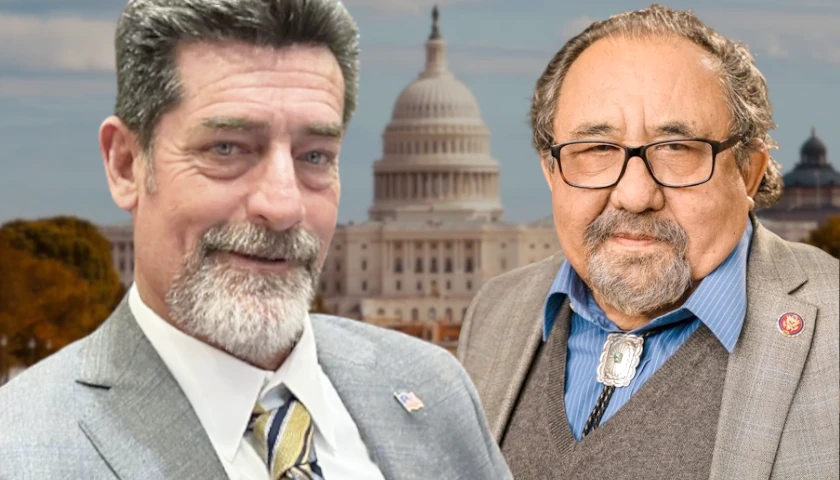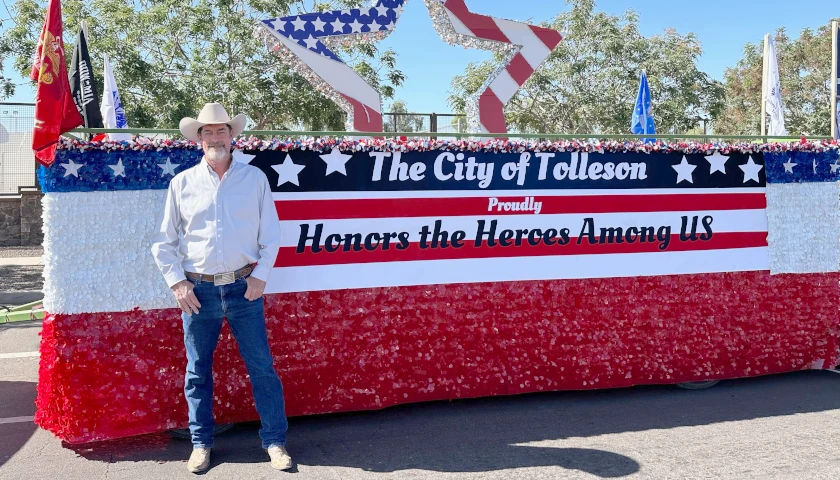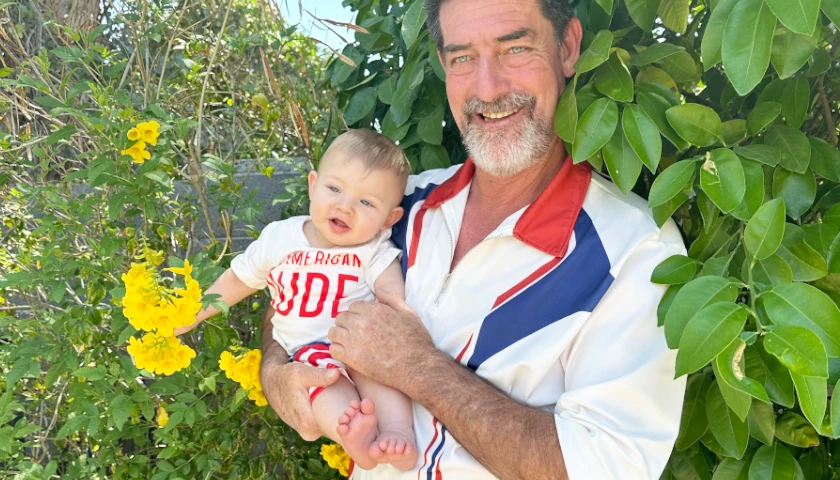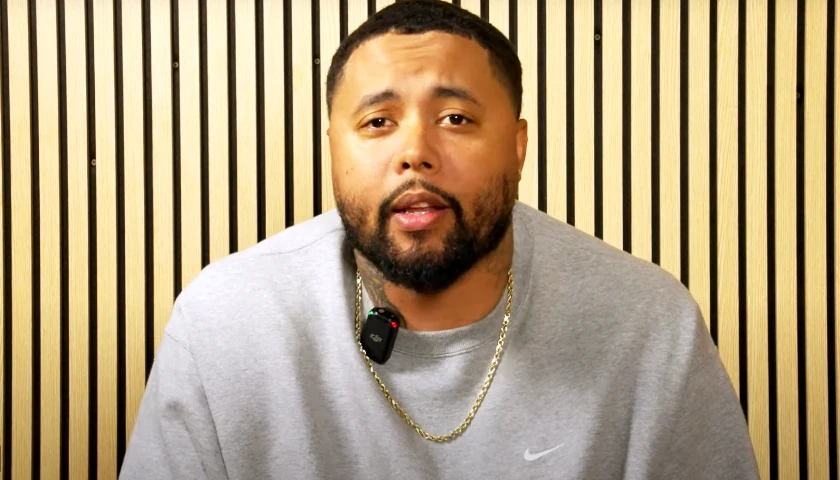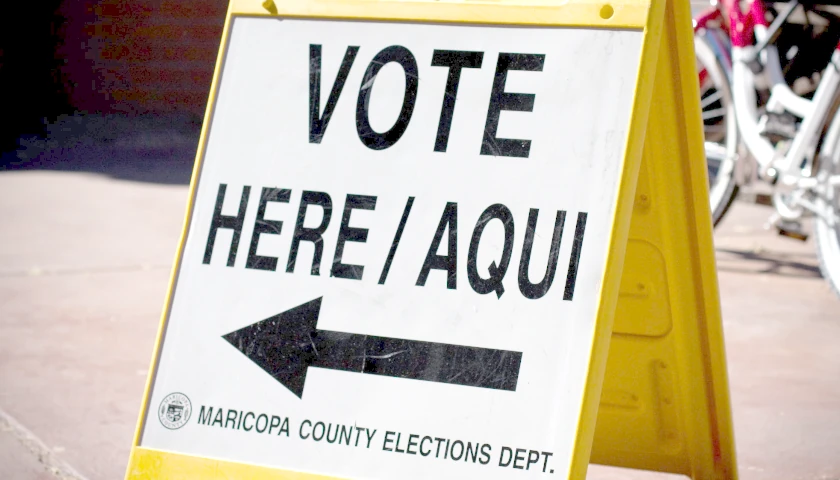Daniel Butierez endured nine and a half years in jail for a crime he was never charged with or tried for. After a three-decade battle, the courts finally admitted their mistake and cleared his record. Now, driven by a deep passion for justice, Butierez is challenging Representative Raúl Grijalva (D-AZ-03), who has held the seat since 2003. As the only Republican candidate stepping up to represent Arizona’s 7th Congressional District, Butierez stands ready to face Grijalva, who announced on April 2 that he is battling cancer. Grijalva’s last confirmed public appearance was in mid-February 2024, when he placed a vote in the House of Representatives.
The 7th Congressional District covers central and west Tucson, Yuma, and Avondale, including most of Arizona’s border towns. Butierez is a Tucson native whose family can trace back three generations to the district. With a population that is largely working class and 62 percent Hispanic, Butierez said he believes “he was born a fighter” and is well-positioned to represent his district in Congress.
In 1992, Butierez (pictured above, left) – then in his mid-twenties – found himself in unexpected legal trouble, according to court records. Butierez told The Arizona Sun Times that at that time he did not smoke marijuana and had no idea where to buy it. However, a pretty single girl approached him, looking for a joint. Eager to make a good impression, Butierez said he sought out and managed to procure some marijuana from an acquaintance.
“I was trying to land the girl,” he admitted.
Records show that the marijuana he obtained was of such poor quality that the court later described the 1.3 grams he had purchased as “five dollars worth of shake.” “Shake” is the remnants of marijuana, sticks, and seeds. When the judge and jury saw the baggie of shake, they laughed, and the judge seemed dismayed during the trial, according to the court transcripts.
The woman turned out to be an undercover officer. This misstep led to his legal entanglement and a series of unfortunate events that spanned decades.
In July 1992, Butierez, Case Number CR035393-001, faced multiple charges, including the unlawful offer to sell over eight pounds of marijuana (Class 2 felony) and conspiracy to sell over eight pounds of marijuana (Class 2 felony). The charge of transporting under a pound of marijuana (Class 3 felony) was dismissed. The jury found Butierez guilty of the offer to sell marijuana over eight pounds but not guilty of conspiracy.
Before sentencing, at an August 22, 1992 status hearing, Butierez argued that the state failed to prove he had the requisite eight pounds of marijuana. The court agreed, finding no evidence that Butierez possessed eight pounds of marijuana, thus deeming him not guilty of the alleged offense. The state admitted “it had hoped” the jury would convict him of conspiracy and did not request proper jury instructions.
The assistant district attorney, Gerald L. Piccirilli, who tried this case, was subsequently suspended from practicing law on unrelated matters.
During the status conference, the transcripts show that the trial judge admitted, “I know there was no evidence whatsoever that he had eight pounds on him at the time of his arrest or that any eight pounds were seized.” The record shows Butierez’s lawyer said, “This points to a significant problem at the trial level. A motion for a new trial should have been filed because Mr. Piccirilli was aware that an indictment required the seizure of more than eight pounds of marijuana.” Butierez’s lawyer then insisted that a “critical element” of the crime was not presented to the jury, nor was a lesser charge considered, even though it would have been appropriate.
On September 14, 1992, at sentencing, the court set aside the guilty verdict for the original charge and convicted Butierez of an uncharged offense. He was sentenced, the sentence was suspended, and he was placed on probation. The trial transcript shows that the court anticipated this conviction would be appealed to address due process concerns. Butierez filed multiple appeals and petitions to correct the injustice, but none were successful. Therefore, Butierez said he avoided jail for 3.5 years until he violated probation.
Butierez recalled to The Sun Times, a dispute with his neighbor over the family cat, which had gone missing when he was out on probation. Upon seeing the cat in his neighbor’s house, Butierez requested its return, but the neighbor denied his request and threatened to call his probation officer. Butierez left without the cat. Days later, he said he was arrested for drinking a beer after work in a local bar, violating his probation conditions.
He was sentenced to a maximum-security prison in Winslow, Arizona, where he would ultimately serve a total of nine and a half years for a crime he did not commit. “Those years were some of the hardest of my life,” Butierez told The Sun Times. He was paroled after a few years, but he began associating with men he had met in prison, leading him down a darker path. Upon returning home, he said that he faced significant personal losses, including his fiancée and children, who had moved on without him. This turmoil led to a period of homelessness, drug addiction, and reincarceration.
Eventually, Butierez found solace in Jesus Christ, which marked a turning point in his life. “I believe God used my trials and tribulations for a greater purpose,” he said. Through his faith, he met his current wife, Paula, and has been clean and thriving since his final release in 2007.
Butierez became a licensed contractor and the owner of two successful small businesses. The catalyst for him to fight his prior criminal record came when he tried to petition the court for an expungement and the restoration of his Second Amendment rights. He was informed that he could not properly petition the court because he had never been convicted of a crime.
In 2019, Butierez filed a Motion to Vacate under Arizona Rule of Criminal Procedure 24.2, arguing that the trial court lacked jurisdiction to convict him of an uncharged offense and that his conviction violated due process, including issues related to double jeopardy and the right to a fair trial.
In 2020, the appellate court heard the motion and noted several factors:
Subject Matter Jurisdiction: The state did not allege a lesser included offense or offer a jury instruction for selling less than a pound of marijuana. The court noted “the indictment was solely for offering to sell eight pounds of marijuana.” As noted in State v. Smith, 6 Ariz. 376, 189 P.2d 205 (1948), filing an information or indictment is required to confer subject matter jurisdiction on the court.
Void Judgment: According to State v. Cramer, 192 Ariz. App. 150, 962 P.2d 224 (1998), a judgment is void if the trial court lacks subject matter jurisdiction. Lack of subject matter jurisdiction can be challenged at any time, as affirmed in Bruce v. State, 126 Ariz. 271, 614 P.2d 813 (1980), and United States v. Cotton, 535 U.S. 625 (2002).
Due Process Violation: The court said the judgment/sentence violates due process as it relates to double jeopardy and the right to a fair trial. The state could not prove the defendant possessed eight pounds of marijuana, and “no form of verdict for this offense was submitted to the jury,” in violation of Arizona Rule of Criminal Procedure 23.
The trial court’s judgment/sentence was void due to lack of subject matter jurisdiction and due process violations, as no lesser offense was alleged, nor was the indictment amended to reflect trial evidence.
The court issued the following ruling:
THE COURT FINDS clear and convincing evidence establishing that the defendant was convicted of an offense that the defendant did not commit. THE COURT FURTHER FINDS Defendant’s September 15, 1992 conviction is VOID.
Butierez told The Sun Times that his wrongful conviction and subsequent fight for justice had fueled his commitment to protecting the rights of U.S. citizens. His court victory underscored the importance of safeguarding constitutional rights, which Butierez said he passionately advocates for. He emphasized the need for better support systems for those struggling with addiction and homelessness, drawing from his own experience of overcoming drug addiction and finding solace in his faith. By surrounding himself with positive influences, including retired officers and business owners, Butierez successfully rebuilt his life and businesses.
Post-ordeal, Butierez said that he has made significant contributions to his community by employing men and women from halfway houses, helping them reintegrate into society. He told The Sun Times that last summer, his businesses employed approximately 63 individuals, many of whom were battling Fentanyl addiction after being released from prison.
Butierez, a passionate advocate for animal rescue and a dedicated community leader, shared his heart for saving animals with The Sun Times. On his property in Marana, he has personally rescued 25 horses and around 70 dogs, successfully rehoming all but 5 of each animal. His rescue efforts are funded by donations from his company, Butierez Painting.
Now running for Congress, Butierez is committed to reducing crime, lowering taxes, improving education, securing the border, and supporting the homeless and those battling addiction. His platform reflects his unwavering dedication to justice and community support, as he promises to fight for the rights of all Americans.
With no other candidates vying for the nomination, Butierez and Grijalva – who used to be neighbors – will face off in the general election in November.
– – –
Christy Kelly is a reporter at The Arizona Sun Times and The Star News Network. Follow Christy on Twitter / X. Email tips to [email protected].
Photo “Daniel Butierez” by Butierez For Congress.

